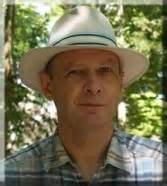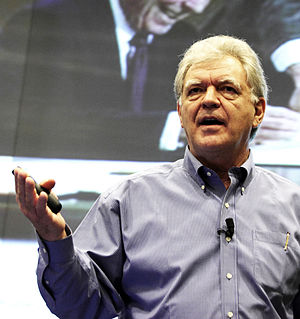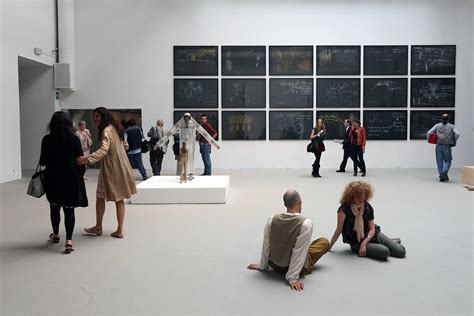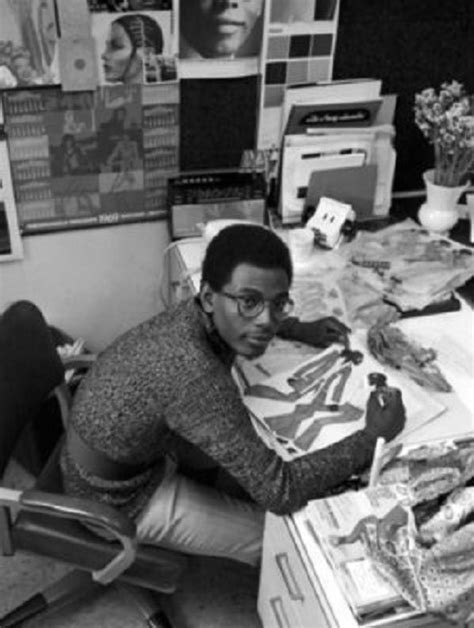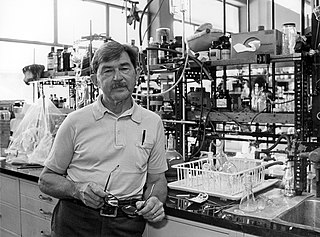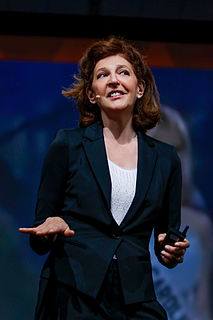Top 392 Interactions Quotes & Sayings - Page 6
Explore popular Interactions quotes.
Last updated on December 12, 2024.
.. the word ecology, coined by the German biologist and philosopher Ernst Haeckel (initially as oecology) in 1866. derives from the Greek oikos, "referring originally to the family household and its daily operations and maintenance." The term ecology is therefore intended to refer to the study of the conditions of existence that pertain to, and the interactions between, all the entities that make up our larger, cosmic household here upon earth.
Babies learn most of what they know from interactions with their parents, but not of the formal, instructional variety. Babies learn from spontaneous, everyday events--the mailman at the door with a package to open...all of which need adult interpretation. They are real events of interest and concern to babies and young children....By contrast, infant education is artificial and out of context.
Nations are like people. Once you understand the interactions between nations, it's easy to understand why things are done, in terms of foreign policy, in a certain way. But nations are not like people in the sense that we are cumulatively represented by others - and their interpretations of what our interests are may not be the same as what they really are. And that's what's dangerous, even in a democracy.
As a result of our [my campaign's] discussions and other interactions with gay and lesbian voters across the state, I am more convinced than ever that as we seek to establish full equality for America's gay and lesbian citizens, I will provide more effective leadership than my opponent [Ted Kennedy].
I am not a climatologist, but I don't think any of the other witnesses are either. I do work in the related field of atomic, molecular and optical physics. I have spent my professional life studying the interactions of visible and infrared radiation with gases - one of the main physical phenomena behind the greenhouse effect. I have published over 200 papers in peer reviewed scientific journals.
I graduated from Wesleyan University with a b.a. in art. I was really headed toward an architecture degree, but when I did the requirements for the major, I realized I was more interested in how people live in buildings than in making buildings. I was more interested in the interactions that happened inside the structures. So I got an art degree as a default position.
The simplest single-celled organism oscillates to a number of different frequencies, at the atomic, molecular, sub-cellular, and cellular levels. Microscopic movies of these organisms are striking for the ceaseless, rhythmic pulsation that is revealed. In an organism as complex as a human being, the frequencies of oscillation and the interactions between those frequencies are multitudinous.
A hallmark of high performance leaders is the ability to influence others through all levels and types of communication, from simple interactions to difficult conversations and more complex conflicts, in order to achieve greater team and organizational alignment. High performing leaders are able to unite diverse team members by building common goals and even shared emotions by engaging in powerful and effective dialogue.
I had very low self-esteem. Books saved me. I found friends in stories like The Chronicles of Narnia and A Tree Grows in Brooklyn. During lunch hour at school I'd avoid social interactions by sitting on the bathroom sink and reading. My mother worked in my school cafeteria. When my anxiety got really bad, I'd put a coat on, grab my book and a flashlight, and hide in the freezer with the mac and cheese.
The majority of my interactions with police were not good. There were a few good ones who were actually protecting the community. But then you have ones from the Valley. They never met me in their life, but since I'm a kid in basketball shorts and a white T-shirt, they wanna slam me on the hood of the car. Sixteen years old.
The world of politics is divided between people who are introverts - who lose a little bit of energy out of each interaction they have so that by the time the day ends, after 1,000 interactions, they're exhausted - and people like Bill Clinton who are extroverted - who get a little bit of energy from each interaction.
My fan interactions are really, really special. They're one of the highlights of this job for me, because I go out and do these conventions all across the world and meet all of these young girls - girls that look like me, and girls that look nothing like me, that are excited and empowered to see a woman of color on television. I'm really grateful for the fans that I have.
Me writing the book and the subsequent interactions that we had were actually the cap on that experience. We were still in this weird purgatory about it when I published the book. When I gave them the galleys and what ensued after that, then I understood a lot more about our relationships and what the experience meant to them. I'd never wanted to know what they thought about it at all.
Facebook has never been merely a social platform. Rather, it exploits our social interactions the way a Tupperware party does. Facebook does not exist to help us make friends, but to turn our network of connections, brand preferences and activities over time - our 'social graphs' - into money for others.
[There] are cases where there is no dishonesty involved but where people are tricked into false results by a lack of understanding about what human beings can do to themselves in the way of being led astray by subjective effects, wishful thinking or threshold interactions. These are examples of pathological science. These are things that attracted a great deal of attention. Usually hundreds of papers have been published upon them. Sometimes they have lasted for fifteen or twenty years and then they gradually die away.
These days, most of my interactions with young people are centered on the poetry or theater classes I teach, so the students I know are reading contemporary poets (they love Willie Perdomo) and scripts (No Child, by Nilaja Sun and Twilight by Anna Deavere Smith). I don't know their reading habits outside of our class, but I believe that they enjoy stories that they can relate to, learn from, be challenged by - you know, the usual good writing that every reader craves.
Some findings reveal extroverts as more adept at reading nonverbal cues, and attribute this to the extrovert's greater interest and experience with social interactions. Another line of research using subliminal images of facial emotion found introverts to be more sensitive to the differences, and hypothesized that this may be why introverts regulate the amount of incoming social information.
Kafka was a complex character in a complex historical era. In order to understand him, you have to do more than cite facts. It is necessary to connect the facts in a meaningful way. His relationship to Judaism, to his father, to women, to literature - all of this is interconnected; and there are decisive moments in his life, in which such interactions suddenly become visible and can be experienced in an almost sensuous manner. It is these moments above all that I try to narrate dramatically.
Looking ahead, future generations may learn their social skills from robots in the first place. The cute yellow Keepon robot from Carnegie Mellon University has shown the ability to facilitate social interactions with autistic children. Morphy at the University of Washington happily teaches gestures to children by demonstration.
I think the use of language is a very important means by which this species, because of its biological nature, creates a kind of social space, to place itself in interactions with other people. It doesn't have much to do with communication in a narrow sense; that is, it doesn't involve transmission of information. There is much information transmitted but it is not the content of what is said that is transmitted.
The frontier in space, embodied in the space colony, is one in which the interactions between humans and their environment is so much more sensitive and interactive and less tolerant of irresponsibility than it is on the whole surface of the Earth. We are going to learn how to relate to the Earth and our own natural environment here by looking seriously at space colony ecologies.
There are many interactions that an actor like me has in public when he gets recognized. The best are 'You're a great actor, good work,' and move on. A very good interaction could be when they say 'You were awesome on 'The West Wing,'' 'Loved 'In Her Shoes,' great movie,' ''What Women Want,' good job dude.
There are many interactions that an actor like me has in public when he gets recognized. The best are 'You're a great actor, good work,' and move on. A very good interaction could be when they say 'You were awesome on 'The West Wing,' 'Loved 'In Her Shoes,' great movie,' 'What Women Want,' good job dude.'
The unique, compelling, and earnest voice that characterizes Jedediah’s weekly columns comes alive with increased vitality in OUTNUMBERED. She shatters leftist stereotypes about conservatives and exposes the myth of liberal tolerance as she relates her interactions with liberals in everyday life. This narrative, interlaced with commentary and impressions, gives us insight into liberals that books merely about abstract principles do not capture. A fascinating read.
On a very, very basic level, I'm definitely pro market because with the market comes the idea of the individual and the idea of specialisation, and I personally like being an individual and choosing my interactions. I don't see culture moving away from that, like back to a farming society. You couldn't do that with the amount of people we have.
Is it ok to sometimes be shy?Yes, of course. The point is,that being that way all the time and using it as an excuse to never be the opposite of shy,it's not good. It's not good for your life, your interactions,strenght of character and how diverse and interesting you can be. You are MORE than shy. Don't be labeled, be what you wanna be in any given moment. And DO what WORKS, not what you think you are.
I don't think there are any rules in real face-to-face relationships or interactions. I think authenticity and being yourself is always, without a doubt, the best plan of action. Things happen differently when you're actually here, so you can't put out a general guideline that's gonna show up in text and be interpreted. There are no rules. Just be yourself.
Since consciousness is the basis of all reality, any shift in consciousness changes every aspect of our reality. Reality is created by consciousness differentiating into cognition, moods, emotions, perceptions, behavior, speech, social interactions, environment, interaction with the forces of nature, and biology. As consciousness evolves, these different aspects of consciousness also change.
I haven't isolated myself. I am not living on a yacht somewhere. I am not tucked away or behind a gate somewhere. I am not flying on a private plane. I am going to the airport, I am with people, some of the interactions are good, some of them are not so good, but it keeps me in touch with being, you know, part of society.
Picking my topics is sort of a process of elimination for me. Most things don't work for me. I like to cover science and unexpected things happening in labs. Also, theoretical research doesn't work for my style. I need scenes and interactions. Then, humor. I'm having the most fun when I can have fun with my work.
Love is a way of seeing and a way of being that honors God in everyone we meet. And it changes us in the most fundamental way. All we need to do is welcome the challenge of our relationships, training our eyes to look beyond human behavior to the Presence within. When we seek to live love, we discover through our interactions with others the divinity within ourselves.
Humans impart meaning and purpose to almost all aspects of life. This sense of meaning and purpose gives us a road map for how to live a good life. This guidance emerges spontaneously from the interactions of human beings living in societies and thinking together about how best to get along. It doesn't require a god or sacred text.
Very little comes easily to our poor, benighted species (the first creature, after all, to experiment with the novel evolutionary inventions of self-conscious philosophy and art). Even the most "obvious," "accurate," and "natural" style of thinking or drawing must be regulated by history and won by struggle. Solutions must therefore arise within a social context and record the complex interactions of mind and environment that define the possibility of human improvement.
I feel like everything in your life begins with physical conditioning. I love eating sweets and stuff like that but I feel like the quality of my parenting is based on my physical conditioning; the quality of my relationship with my wife, the quality of all the interactions I have in my life start with being in great physical condition.
I'm not trying to create a stand-in or avatar with whom the reader can identify, but separate, believable characters with distinct personalities; I'm trying to place the reader more in the role of observer rather than that of participant. I think this approach comes out of my own personal desire and struggle to understand our world, and the complex interactions of people with one another and their environment. My work is an improvised exploration of this complexity, as opposed to a structured, plot-driven narrative.
I'll wait to see what the film [The Lobster] is, but it's set in a contemporary world, in America, there are hospitals and diners, parks, things that we will recognize and experienced ourselves but yet there's this similar kind of uneasiness through all the interactions and all the things that take place. It was unnerving reading the script. I kind of felt nauseous after reading it.
I feel like I understand Trump's character better than the average person now, having seen all of these little interactions with charity. I wanted to keep doing something that's like that, and not just doing pure politics. So my piece of the Trump empire is the golf courses, Mar-a-Lago, and the winery.
Now, in practice, in daily social interactions, etc., there may be all kinds of biases and prejudices that are unspoken, that people aren't aware of, that affect who's hired, and who gets loans, and how kids are treated in school. But it's a powerful thing if you have on your side an idea that the overwhelming majority of people believe in because that's how you can build a consensus that's lasting.
I never write something and consciously embed political commentary or any other kind of commentary. I just try to get the characters into a room or out of a room, or onto the plane, or through the grocery store. The political stuff, the class stuff, the gender stuff, is in the air, it's in their interactions, because it's there for all of us.
The people in this house, I felt, and I included myself, were like characters each from a different grim and gruesome fairy tale. None of us was in the same story. We were all grotesques, and self-riveted, but in separate narratives, and so our interactions seemed weird and richly meaningless, like the characters in a Tennessee Williams play, with their bursting unimportant, but spell-bindingly mad speeches.
Three principles - the conformability of nature to herself, the applicability of the criterion of simplicity, and the utility of certain parts of mathematics in describing physical reality - are thus consequences of the underlying law of the elementary particles and their interactions. Those three principles need not be assumed as separate metaphysical postulates. Instead, they are emergent properties of the fundamental laws of physics.
A problem that I have with everything fictional is that writers are always having to come up with sudden artillery explosions in the middle of whatever is going on. The characters are having interesting, subtle interactions, or jealousies, or whatever it is, and suddenly some gigantic angry eruption has to happen, a giant gasp where everyone has to scramble around. That's the point where I'm turned off. I want the dynamic range to be a little smaller. I don't like the big false bangs.
I feel like I veer more away from technology than toward it. I'm a little scared of the direction we're going, to be honest. It feels like a sci-fi novel from the '50s, the way we can control everything and the solitude we each have in our own little bubbles, and yet we feel like we have social interactions. We're moving in a weird direction, at least.
[The White House staff] start bringing in their kids, who you think should be babies and now are in second grade or something, and you've watched them grow up. So I think what ends up happening is you end up maintaining those networks and those contacts, but the concentrated interactions and experience that you have here, I don't think, I don't expect you can duplicate anyplace else.
One of the great things about the United States is that when it comes to world affairs, the president obviously is the leader of the Executive Branch, the Commander-in-Chief, the spokesperson for the nation, but the influence and the work that we have is the result not just of the president, it is the result of countless interactions and arrangements and relationships between our military and other militaries, and our diplomats and other diplomats, the intelligence officers and development workers.
Science as an intellectual exercise enriches our culture, and is in itself ennobling. ... Though to the layman, the world revealed by the chemist may seem more commonplace, it is not so to him. Each new insight into how the atoms in their interactions express themselves in structure and transformations, not only of inanimate matter, but particularly also of living matter, provides a thrill.
I have to control my mouth - and that's hard enough - and then I have to manipulate the puppet and make it look real - like, make its interactions look real. And then I have to sing at the same time, and I have to have my facial expressions reacting to the puppet... So it's a lot going on, and I have to focus on every single thing at the same time.
I think of the described dynamics as a fluid negotiation. I don't think these specific interactions can happen to the black or brown body without the white body. And there are ways in which, if you say, "Oh, this happened to me," then the white body can say, "Well, it happened to her and it has nothing to do with me." But if it says "you," that you is an apparent part of the encounter.
